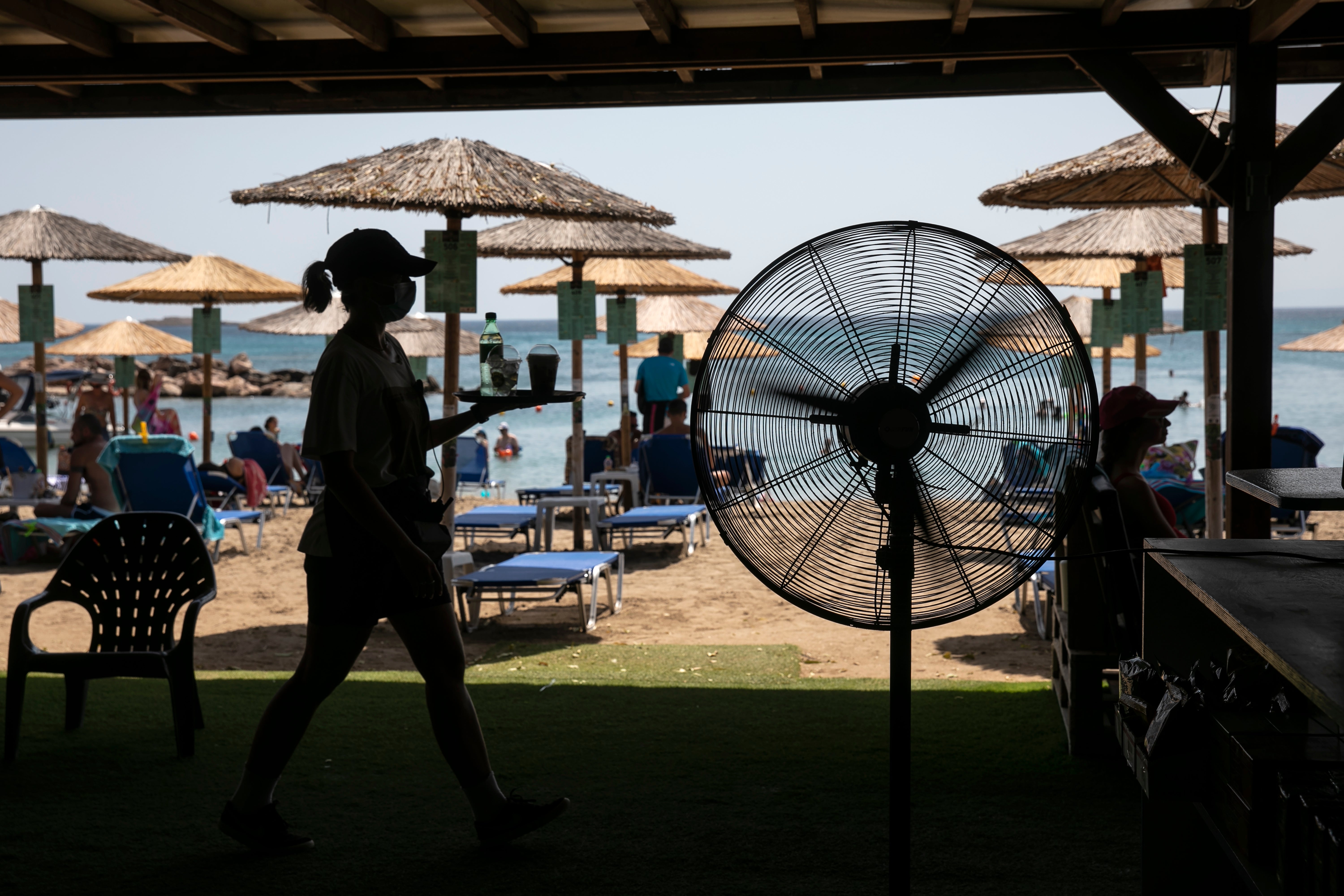In heat emergency, Greece adds checks for fires, power cuts
Greek authorities are ordering additional fire patrols and infrastructure maintenance inspections as the country grapples with a heat wave expected to last more than a week

Your support helps us to tell the story
From reproductive rights to climate change to Big Tech, The Independent is on the ground when the story is developing. Whether it's investigating the financials of Elon Musk's pro-Trump PAC or producing our latest documentary, 'The A Word', which shines a light on the American women fighting for reproductive rights, we know how important it is to parse out the facts from the messaging.
At such a critical moment in US history, we need reporters on the ground. Your donation allows us to keep sending journalists to speak to both sides of the story.
The Independent is trusted by Americans across the entire political spectrum. And unlike many other quality news outlets, we choose not to lock Americans out of our reporting and analysis with paywalls. We believe quality journalism should be available to everyone, paid for by those who can afford it.
Your support makes all the difference.Greek authorities ordered additional fire patrols and infrastructure maintenance inspections Friday as the country grappled with a heat wave fed by hot air from Africa that is expected to last more than a week.
The emergency measures will also include efforts to create more air-conditioned areas open to the public in cities around Greece and at refugee camps, though the efforts are complicated by COVID-19 pandemic-related limits on how many people can gather together.
Temperatures in Greece and nearby countries in southeast Europe are expected to climb to 42 degrees Celsius (107.6 F) in many cities and towns on Monday and ease only later next week.
Officials said the additional inspections were aimed at preventing water and power outages, with the increased use of air conditioning testing the country's energy capacity.
“This is a dangerous weather phenomenon. We have been saying it from the start of the week,” said Theodoris Kolydas, director of Greece’s National Meteorological Service.
“The conditions will be stubborn and only subside gradually... very hot air masses from the shores of Africa are heading toward our region.”
As the temperatures rose, three separate wildfires damaged homes in southern Greece this week, outside Athens and the western city of Patras.
Civil protection chief Nikos Hardalias said climate change was raising the fire risk.
“On average (in mid-summer), we are dealing with about 50 fires per day, and many of those are under difficult conditions. That number is clearly increasing each year,” Hardalias told private Antenna television.
“It’s a phenomenon that’s gradually getting worse. Climate change is now a climate threat. I say it everywhere I go. We all have a responsibility to protect the country," he said.